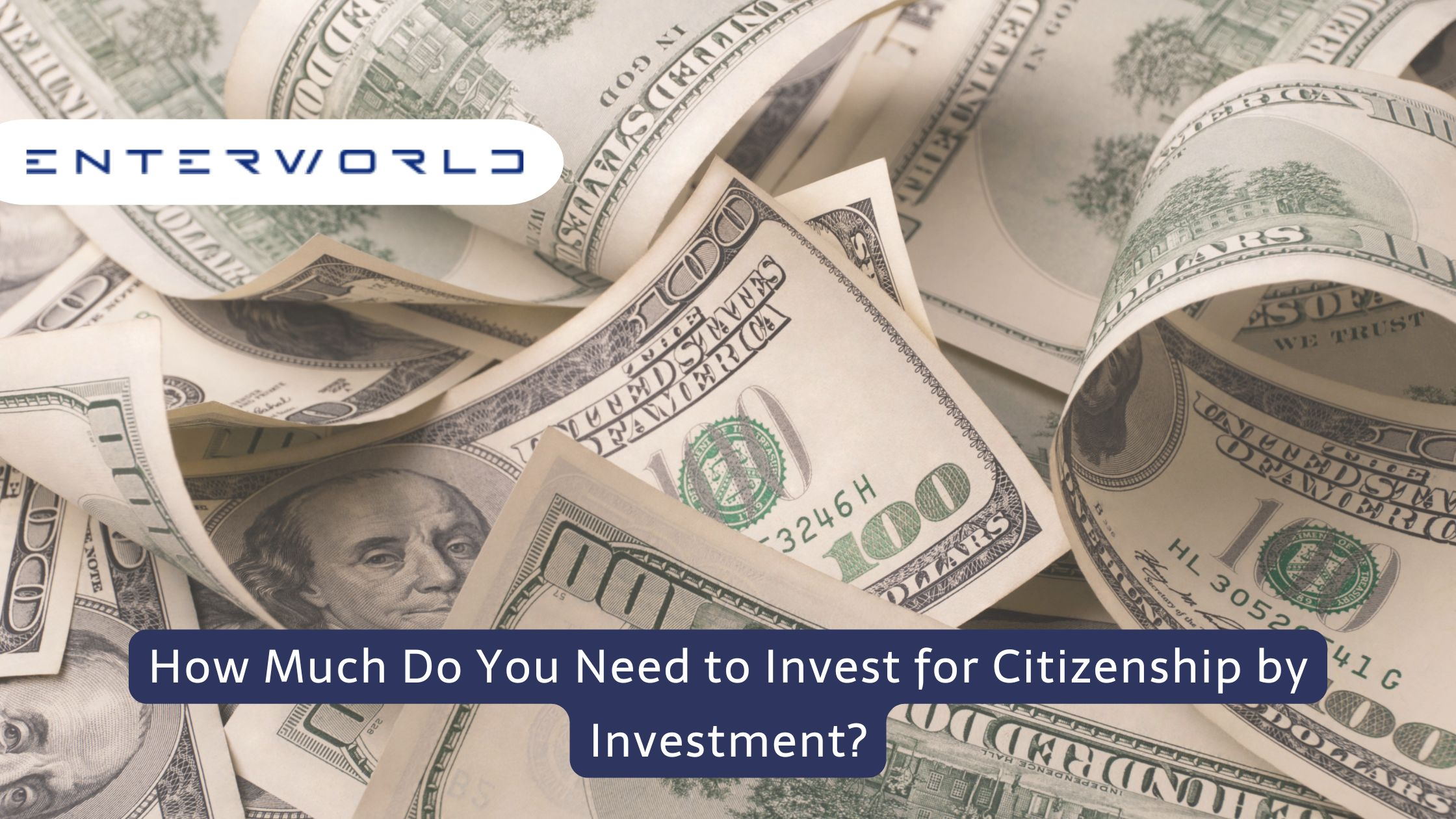Citizenship by Investment (CBI) offers a unique path to global mobility, financial freedom, and lifestyle upgrades. For entrepreneurs, investors, and high-net-worth individuals, it’s more than a passport—it’s a strategic tool to access new markets, improve travel freedom, and secure a Plan B in an uncertain world.
But how much does it actually cost to obtain a second citizenship through investment?
In this guide, we break down the real numbers behind citizenship by investment, country by country. Whether you're looking for tax advantages, visa-free travel, or a safe haven for your family, understanding the financial commitment involved is key to making the right choice.
What Is Citizenship by Investment?
Citizenship by investment is a legal process by which an individual obtains a second citizenship in exchange for a qualifying economic contribution to a country. This could be in the form of:
-
A government donation
-
Real estate investment
-
Business creation
-
Investment in national development funds or bonds
In return, the individual—and often their family—gain the right to live, work, and travel as citizens of that country.
Key Benefits of Citizenship by Investment
-
Visa-free travel to 100+ countries depending on the passport
-
Tax optimization in favorable jurisdictions
-
Access to global education and healthcare
-
Business expansion opportunities in new markets
-
Security and stability for families and future generations
But while the benefits are appealing, it’s important to approach CBI with a clear understanding of what it takes financially.
How Much Do You Need to Invest? A Country-by-Country Look
Here’s what you can expect to pay in the most popular CBI destinations, as of 2025:
1. St. Kitts and Nevis
-
Minimum investment:
-
Donation to Sustainable Island State Contribution (SISC): USD 250,000 (main applicant)
-
Real estate option: USD 400,000 (must hold for 7 years)
-
-
Other costs:
-
Government fees: USD 25,000+
-
Due diligence and legal fees: USD 7,500–USD 15,000
-
Total expected: USD 280,000–USD 450,000+
2. Dominica
-
Minimum investment:
-
Donation to Economic Diversification Fund: USD 100,000 (single applicant)
-
Real estate: USD 200,000 (approved projects)
-
-
Other costs:
-
Government fees, legal, and processing: USD 10,000–USD 20,000
-
Total expected: USD 120,000–USD 250,000+
3. Antigua and Barbuda
-
Minimum investment:
-
Donation to National Development Fund: USD 100,000 (family of four)
-
Real estate: USD 200,000
-
-
Other costs:
-
Application, processing, and due diligence: USD 25,000+
-
Total expected: USD 130,000–USD 250,000+
4. Grenada
-
Minimum investment:
-
Donation: USD 150,000 (single applicant)
-
Real estate: USD 220,000 (shared investment, hold for 5 years)
-
-
Other costs:
-
Government, processing, and legal fees: USD 10,000–USD 30,000
-
Total expected: USD 170,000–USD 270,000+
5. Turkey
-
Minimum investment:
-
Real estate purchase: USD 400,000 (must hold for 3 years)
-
-
Other costs:
-
Legal and transfer fees: USD 10,000–USD 20,000
-
Total expected: USD 410,000–USD 430,000+
Note: Turkey is not in the EU, but it offers strong regional access and fast processing (as little as 3 months).
6. Malta (Citizenship by Naturalization for Exceptional Services)
-
Minimum investment:
-
Contribution to government fund: EUR 600,000 (after 36 months residency) or EUR 750,000 (after 12 months)
-
Real estate: EUR 700,000 purchase or EUR 16,000/year rental
-
-
Other costs:
-
Application, due diligence, and agent fees: EUR 100,000+
-
Total expected: EUR 900,000–EUR 1.2 million+
Malta offers EU citizenship, making it one of the most powerful passports in the world.
7. Austria (Exceptionally rare, not a standard program)
Austria does not offer a typical CBI program. Citizenship can be granted by the government under extraordinary contributions, such as large-scale investments or philanthropy.
-
Estimated investment: EUR 2–3 million+
-
Total cost: Highly variable, case-by-case
This route is elite and not guaranteed—it’s only awarded in special cases approved by the government.
Hidden Costs to Watch For
Aside from the investment amount, there are other fees to consider:
-
Due diligence fees (for background checks)
-
Government processing fees
-
Legal and advisory fees
-
Real estate maintenance costs
-
Passport issuance and courier fees
-
Taxes on property or income (depending on jurisdiction)
Always read the fine print and work with a licensed CBI advisor or government-approved agent to avoid missteps.
How to Choose the Right Program
Here’s how we suggest approaching your decision:
-
Define your goals
Do you want global mobility, family relocation, tax planning, or EU access? -
Set a realistic budget
Include all fees, not just the headline investment. -
Consider timelines
Some programs take 2–3 months; others can take a year or more. -
Evaluate residency requirements
Some countries require physical presence, others don’t. -
Look at long-term value
Consider the strength of the passport, political stability, and business opportunities.
Conclusion
Citizenship by investment isn’t just about the money—it’s about freedom, opportunity, and global flexibility. But understanding the true cost is essential for making the right move. Depending on the country and program, you might spend as little as USD 120,000 or well over USD 1 million.
Whether you’re looking for visa-free access, a safe haven for your family, or a way to grow your international presence, citizenship by investment can be a powerful tool—if approached wisely.
Ready to explore your options? We’re here to guide you every step of the way.
